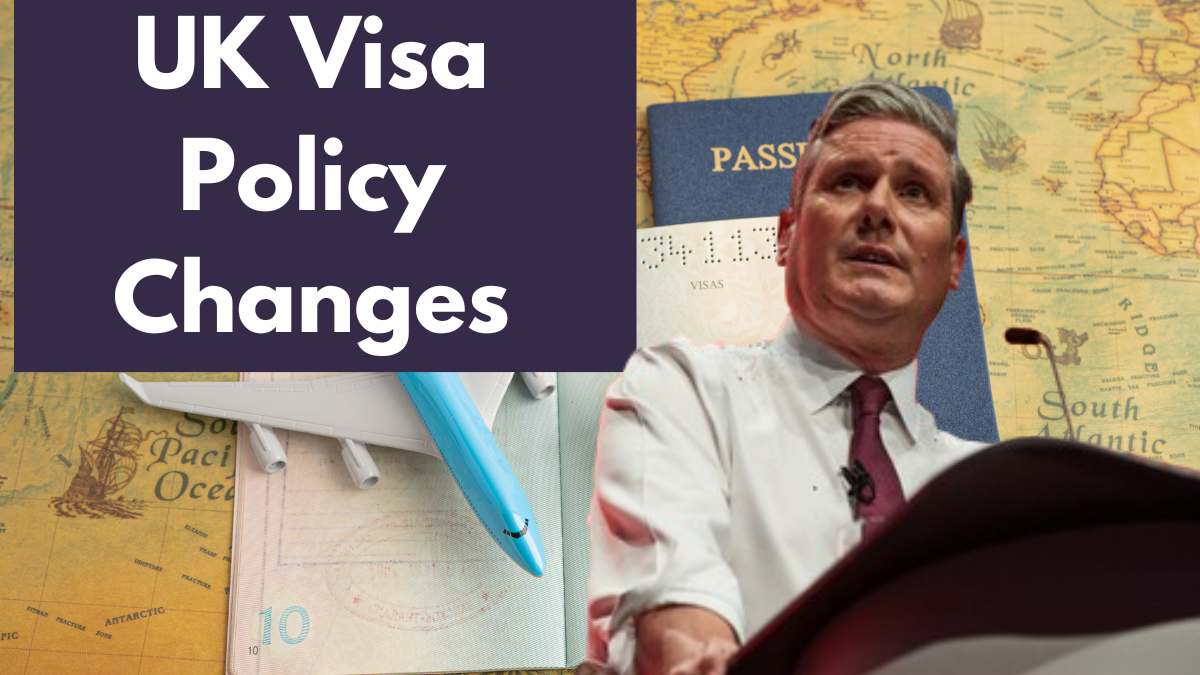The UK government has announced significant updates to its visa policies, set to take effect from February 1, 2025. These revisions primarily impact students, skilled workers, family applicants, and tourists, introducing stricter financial thresholds for visa approval. Authorities argue that these changes are designed to ensure that applicants are financially self-sufficient and do not rely on public funds. However, these updates have sparked debates over affordability and accessibility.
Additionally, an Electronic Travel Authorization (ETA) system will be implemented for visa-exempt travellers from certain European nations. This new requirement, effective from April 2, 2025, raises concerns about potential disruptions for business and short-term travellers.
As of now, there is no official confirmation regarding possible reversals or adjustments to these policies. However, ongoing feedback from stakeholders, including universities and businesses, may influence modifications shortly.

Overview of Key Visa Policy Changes
The new financial thresholds significantly alter the requirements for various visa categories. Below is a detailed breakdown of these changes:
Updated Financial Requirements for UK Visas (Effective February 2025)
| Visa Category | Previous Requirement | New Requirement (2025) |
|---|---|---|
| Student Visas (Outside London) | Minimum living expenses: £9,207 per year | Increased to £12,000 per year |
| Student Visas (Within London) | Minimum living expenses: £12,006 per year | Increased to £15,000 per year |
| Skilled Worker Visas | Minimum salary: £26,500 per year | Increased to £38,700 per year |
| Family Sponsorship | Minimum income for sponsoring spouse/dependent: £18,600 | Increased to £29,000 (expected to reach £38,700 by 2026) |
| Tourist Visas | No fixed proof of funds required | Expected range: £1,500 – £2,500 per visit |
1. Student Visas: Stricter Financial Proof for Applicants
International students seeking to study in the UK must now demonstrate a higher level of financial stability to secure a visa.
- For students living outside London, the minimum financial requirement has been raised from £9,207 to £12,000 per year.
- For students residing within London, the required amount has increased from £12,006 to £15,000 per year.
While this adjustment reflects the rising cost of living, it has raised concerns among prospective students about affordability, particularly for those from developing nations. Universities fear a decline in international student enrollment, as students may opt for more affordable alternatives in countries such as Canada, Australia, and Germany.
2. Skilled Worker Visas: Higher Salary Thresholds
The UK has significantly increased the salary requirement for skilled workers, with the new threshold set at £38,700 per year, up from £26,500.
- Certain sectors, including healthcare and education, may qualify for exemptions, but many professionals, particularly those in mid-level positions, may find it harder to secure work opportunities in the UK.
- Smaller businesses and startups may also struggle to attract international talent due to the financial burden of meeting the new salary requirements.
3. Family Visas: Higher Sponsorship Income Requirements
Families wishing to reunite in the UK now face stricter financial criteria.
- The required minimum income for a UK citizen or resident to sponsor a spouse or dependent has increased from £18,600 to £29,000.
- Further increases are expected, with projections reaching £38,700 by 2026.
This shift has sparked debates about the feasibility of family reunification under these tougher conditions, with critics arguing that lower-income families may find it increasingly difficult to meet the new financial thresholds.
4. Tourist Visas: Enhanced Financial Proof Requirements
While tourists are not subjected to fixed financial thresholds, the UK now requires stronger proof of funds from visitors.
- Applicants are expected to demonstrate access to funds ranging from £1,500 to £2,500 per visit to cover transport, accommodation, and personal expenses.
- Reports indicate that visa processing times may become longer, with additional document verification becoming a standard requirement.
Concerns and Reactions from UK Visa Applicants
1. Students Considering Alternative Study Destinations
With higher financial requirements making the UK a less affordable option, many students are exploring alternative study destinations such as:
- Canada: Known for its welcoming immigration policies and affordable tuition fees.
- Australia: Offers post-study work opportunities and financial aid options.
- Germany: Provides tuition-free education at public universities for international students.
- Czech Republic: An emerging destination with affordable education and a lower cost of living.
- China: Offers a growing number of English-taught programs at competitive tuition rates.
2. Skilled Workers Facing Increased Barriers
The increased salary threshold may discourage skilled professionals from applying, particularly those in industries that cannot offer competitive salaries.
- Sectors such as IT, engineering, and creative industries may experience difficulty in attracting international talent.
- Startups and SMEs may struggle to meet the financial demands of hiring foreign employees, potentially leading to labour shortages in key sectors.
3. Family Applicants Struggling with Higher Costs
The rise in sponsorship income thresholds has made family reunification more difficult. Critics argue that these changes disproportionately impact families who may already be facing financial hardships.
- Advocacy groups continue to push for reconsideration, citing the emotional and social consequences of separating families due to financial constraints.
Public Response and Future Outlook
The new visa policies have received mixed reactions:
- Supporters believe these measures will enhance economic sustainability and reduce dependency on public funds.
- Critics argue that they will create financial and emotional hardships for applicants, particularly students and families.
As of now, no official changes or reversals have been confirmed. However, universities, businesses, and advocacy groups continue to lobby for adjustments.
What’s Next for UK Visa Applicants?
With the UK’s immigration policies evolving, further refinements may emerge in the coming months. In the meantime, applicants should:
- Review the updated financial requirements carefully.
- Plan to meet the increased financial thresholds.
- Explore scholarship opportunities or employer sponsorships to mitigate costs.
- Seek professional immigration advice if uncertain about eligibility.
Frequently Asked Questions (FAQ)
1. When do the new UK visa policies take effect?
The new visa policies will be implemented from February 1, 2025.
2. How will the ETA system impact travellers?
Visa-exempt travellers from select European countries must apply for an Electronic Travel Authorization (ETA) before entering the UK. The system becomes mandatory from April 2, 2025.
3. Will there be exemptions for the increased financial thresholds?
Some sectors, such as healthcare and education, may qualify for exemptions from the higher salary requirements under the skilled worker visa category.
4. Are there any expected changes to these policies?
While no official modifications have been announced, continued feedback from universities and businesses may lead to adjustments shortly.
5. What alternatives are available for students affected by the new financial requirements?
Students can explore study options in countries such as Canada, Australia, Germany, the Czech Republic, and China, which offer competitive tuition fees and favourable immigration policies.
The UK’s visa landscape is undergoing significant transformations, and staying informed is crucial for applicants looking to study, work, or reunite with family in the country.
For More Information Click Here
